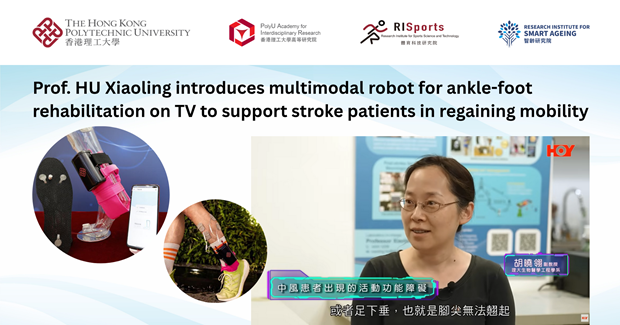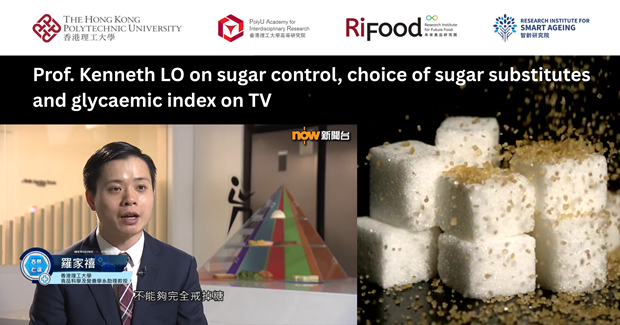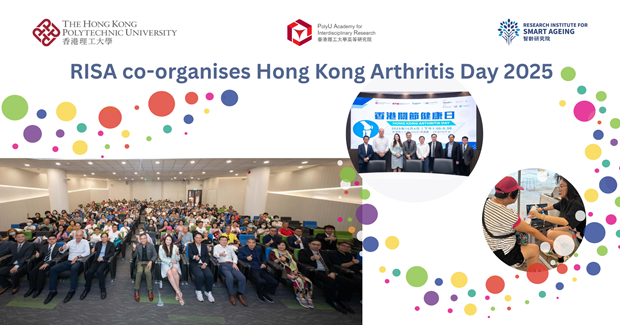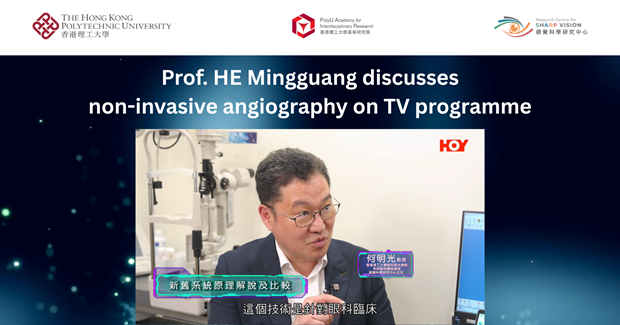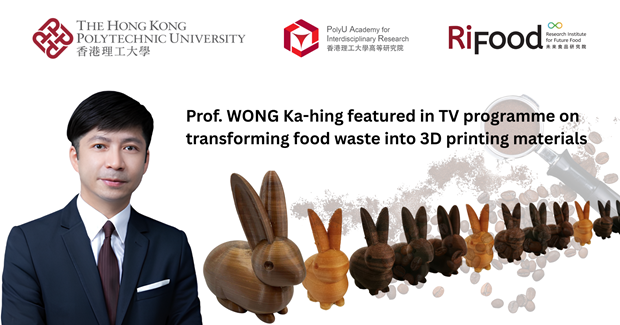Prof. TAO Xiaoming, Director of Research Institute of Intelligent Wearable Systems (RI-IWEAR), Chair Professor of Textile Technology and Vincent and Lily Woo Professor in Textile Technology, together with her team, has successfully developed a series of intelligent wearable systems, which are applied in fields such as sports, healthcare, entertainment, and industry.
The wearable system with adaptive cooling and heating for sport recovery “COOLWEAR”, utilises a unique fluidic textile structure and unidirectional heat-transfer composite fabrics, combined with ergonomic design. It also integrates multifunctional technologies for electrofluidic detection and control, enabling rapid temperature switching between 5°C and 40°C within 10 seconds, with a uniform temperature distribution and a maximum heat flux of up to 1.2 kW/m2. The system consists of a main unit and a wearable component, is compact in size, and features a three-chamber intermittent compression device suitable for use on various parts of the body, for effectively enhancing post-exercise muscle oxygenation and elasticity, while alleviating delayed onset muscle soreness. Users can customise treatment modes via a mobile application, which allows athletes to easily use it on the sidelines for rapid sports recovery.
In the field of multisensory simulation wearable technology, the team’s research is focused on mixed scent perception in human and multisensory tactile simulation. They have pioneered a bionic mechanism based on fibre assemblies and designed corresponding actuators to simulate mixed odour and tactile sensations. Using artificial intelligence and algorithms, the device integrates sensory signals to provide users with a highly immersive experience. Their research and development goals include: AI-controlled wearable olfactory simulation devices, fabric-based haptic device for dynamic simulation of hardness and temperature, and wearable fibre-based acoustic hearing devices for continuous monitoring of human organ acoustic signals.
Furthermore, the electronic textile interactive system is also one of the team’s significant research achievements. By employing heterogeneous integration technology of microelectronic chips and fibre materials, the team has developed a new generation of high-performance, programmable electronic textiles, and has made a breakthrough by developing the world’s thinnest electronic yarn, less than 1 millimetre in diameter and washable, which can be seamlessly applied to traditional knitting and embroidery techniques. Based on these technologies, the team has achieved numerous innovations, including full-colour programmable electronic textile displays, intelligent interaction, composite electronic yarn manufacturing processes, novel fibre-based electronic materials, and dedicated spinning equipment, creating a multimodal intelligent textile system that simultaneously interacts with human vision, hearing, and touch. These systems not only maintain the softness and comfort of fabrics, but also offer advantages such as stain resistance, water resistance and multimodal human-machine interaction.
The series of ground-breaking achievements by Prof Tao’s team fully demonstrates PolyU’s outstanding research capabilities and innovative spirit, bringing diverse applications to intelligent wearable technology and becoming a driving force in fields such as sports, healthcare, entertainment and industry.
Online coverage:
Xinhua News - https://h.xinhuaxmt.com/vh512/share/12737062?docid=12737062&newstype=1001&d=1350125&channel=weixin&time=1758592082577
| Research Units | Research Institute for Intelligent Wearable Systems |
|---|
You may also like








